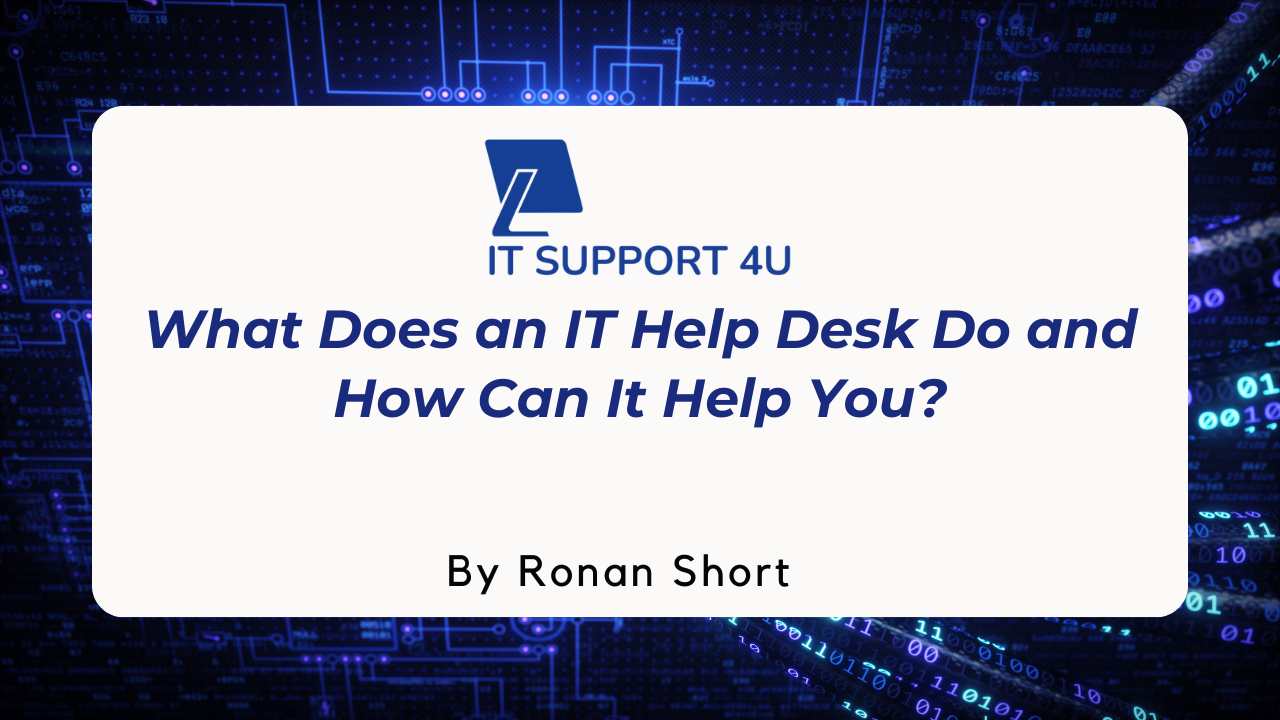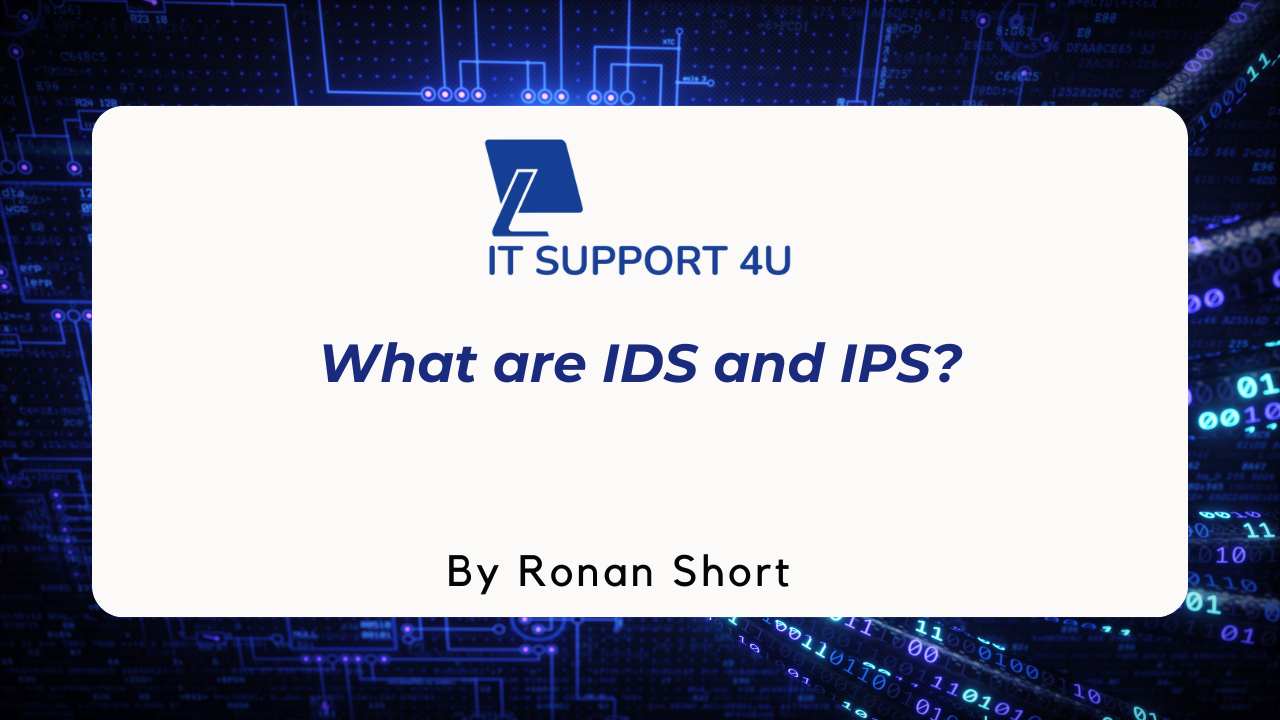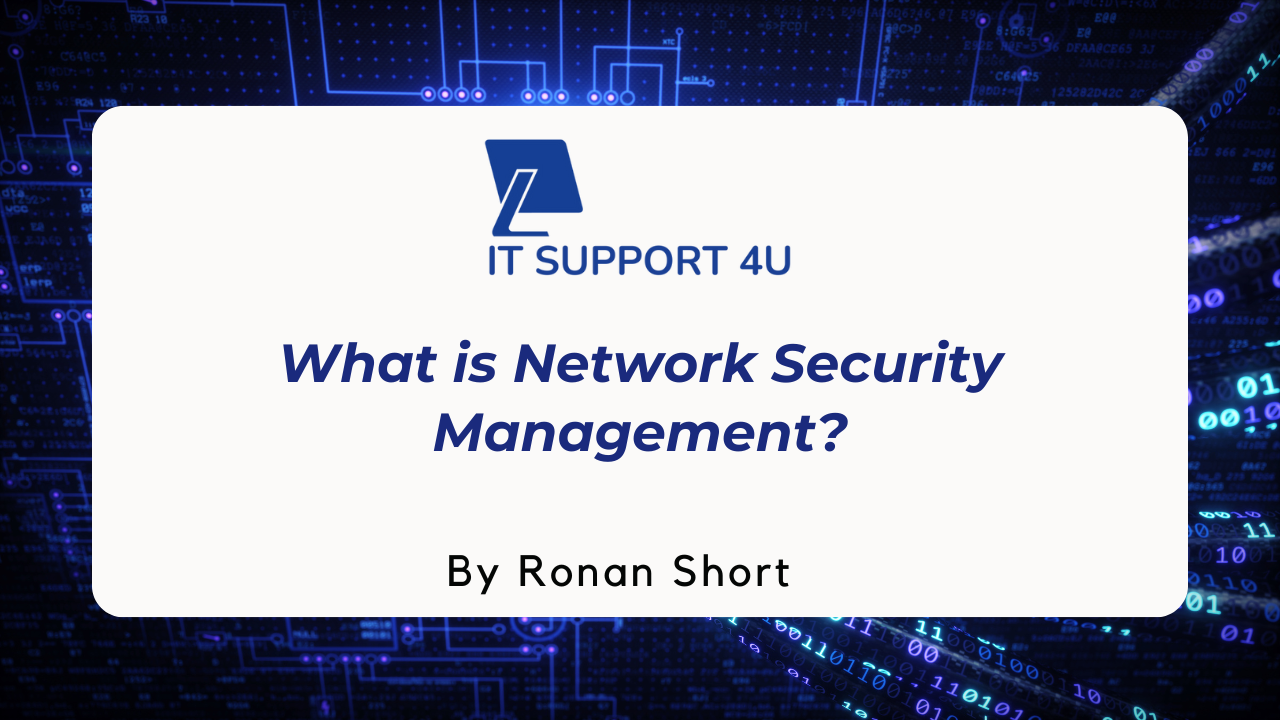Are you concerned about the safety of your business's digital assets? According to recent reports suggesting a 600% increase in cyber threats since the COVID-19 pandemic.
This blog post will delve into what network security is and how it can shield your business from lurking cyber threats. By understanding its key factors, you'll be well-equipped to enhance your data protection strategy. So, let's get started!
Key Takeaways
- Network security in business refers to the measures and protocols put in place to protect a company's network infrastructure, data, and communications from unauthorised access, threats, and vulnerabilities.
- It is crucial for protecting against unauthorised access and threats such as hacking and malware attacks. By implementing strong security measures like firewalls, network segmentation, and access control, businesses can prevent hackers from gaining unauthorised access to their valuable data.
- Network security also prioritises safeguarding data and confidentiality by implementing encryption protocols, secure network configurations, and employee awareness training. This ensures that sensitive information like financial data, client records, customer details, and intellectual property are protected from unauthorised access or interception.
What is Network Security?
Network security refers to the measures and protocols put in place to protect a business's network infrastructure, data, and communications from unauthorised access, threats, and vulnerabilities.
Definition and importance
Network security encompasses the use of software and hardware tools tailored primarily to shield all of a company's precious data. This includes employee details, financial statistics, and product specifics—all of which are assets that could potentially be targeted by cyber threats.
It serves as our digital gatekeeper, thwarting unauthorised access to or misuse of proprietary information. Not only does it maintain the integrity and confidentiality of computer networks and data, but it also acts crucially to prevent any devastating losses by safeguarding business and personal information diligently stored within these systems.
By ensuring secure storage for shared client data, network security allows us to uphold stringent rules and configurations designed to combat hacking attempts, malware attacks, or illicit access from unwanted sources.
Above all else, though, is its necessity in today's ever-evolving landscape where cyber threats have risen exponentially; one breach could result in crippling financial loss or even irreparable reputational damage amongst clients who trust us with their information.
Protection Against Unauthorised Access and Threats
Network security in business is crucial for protecting against unauthorised access and threats. By implementing strong security measures, organisations can prevent hackers from gaining unauthorised access to their valuable data and sensitive information.
Effective network security acts as a gatekeeper, ensuring that only authorised individuals have access to the company's proprietary information. It helps safeguard against cyber threats such as hacking, malware attacks, and other forms of unauthorised intrusion.
By proactively securing their networks, businesses can mitigate the risk of potential financial loss, reputational damage, and legal consequences resulting from a security breach.
Safeguarding Data and Confidentiality
We prioritise the safeguarding of your data and confidentiality. Our network security measures are specifically designed to protect valuable and sensitive information, including financial data, client records, customer details, and intellectual property.
By implementing a combination of software and hardware tools such as firewalls, intrusion detection systems, encryption protocols, and secure network configurations, we ensure that unauthorised access to your data is prevented.
We understand the importance of maintaining the integrity and confidentiality of your information so that you can have peace of mind knowing that your data is safe with us.
Types of Network Security Protections
Following are the types of network security protections:
Firewall
Firewalls are an essential part of network security in business. They act as a barrier between the internal network and external threats, preventing unauthorised access to sensitive data.
Firewalls analyse incoming and outgoing network traffic, filtering out potentially malicious or suspicious activity. By monitoring and controlling network communications, firewalls help protect against hacking attempts, malware infections, and other cyber threats.
Implementing a firewall is an effective way to safeguard valuable information and maintain the integrity of your business's network infrastructure.
Network Segmentation
Network segmentation is an important aspect of network security in business. It involves dividing a computer network into smaller, more manageable sections, or segments. Each segment has its own set of rules and configurations to prevent unauthorised access and potential threats from spreading across the entire network.
By implementing network segmentation, businesses can limit the scope of any potential breach or cyberattack, reducing the impact on their overall system. This approach helps protect sensitive data, maintain confidentiality, and ensure the smooth functioning of different departments within an organisation.
Network segmentation also allows for easier monitoring and management of network traffic, improving overall security measures.
By segmenting their networks, businesses can better control access to sensitive information and mitigate risks associated with data breaches or cyberattacks. It adds an extra layer of defence against unauthorised users trying to gain entry into a company's systems while also minimising potential damage if a breach occurs in one segment.
With proper implementation and regular updates to security protocols across all segments, businesses can enhance their overall network security posture and effectively safeguard valuable data from threats, both internal and external.
Access Control
Implementing access control measures is a crucial aspect of network security in business. Access control helps organisations prevent unauthorised individuals from gaining access to sensitive data and systems.
By setting up authentication protocols, such as passwords or biometric scans, businesses can ensure that only authorised personnel can enter restricted areas or access confidential information.
This protects against potential threats, including insider attacks and data breaches. Additionally, access control allows companies to grant specific permissions and privileges to different users based on their roles, ensuring that employees have the appropriate level of access to perform their job responsibilities effectively without compromising security.
Remote Access VPN
Implementing a Remote Access VPN (Virtual Private Network) is an essential component of network security for businesses. It allows employees to securely connect to the company's internal network from remote locations, such as their homes or while travelling.
With a Remote Access VPN, sensitive data and communications are encrypted, ensuring that unauthorised individuals cannot access or intercept them. This helps protect against potential threats like hackers or eavesdroppers who may attempt to gain unauthorised access to the network.
By utilising a Remote Access VPN, businesses can enable their employees to work remotely without compromising the security of their valuable information and maintain productivity even outside the office environment.
Zero Trust Network Access (ZTNA)
Zero Trust Network Access (ZTNA) is a cutting-edge approach to network security that focuses on verifying every user and device trying to access a network. Unlike traditional methods that rely on perimeter defences, ZTNA assumes that no one can be trusted and requires authentication and authorization for every single connection attempt.
By adopting this approach, organisations can significantly reduce the risk of unauthorised access and potential security breaches. ZTNA ensures that only authenticated users with the appropriate privileges can access sensitive data or resources, adding an extra layer of protection to your network infrastructure.
With ZTNA in place, you can increase the security of your business's network and protect valuable information from cyber threats.
Email Security
Email security is a critical aspect of network security in business. It helps protect sensitive information exchanged through email channels, ensuring that confidential data remains secure and private.
With the increasing threat of phishing attacks and malware distribution via email, implementing strong email security measures is essential to prevent unauthorised access and data breaches.
By using advanced encryption techniques, spam filters, and antivirus software, businesses can safeguard their communication channels from potential cyber threats. Additionally, educating employees about best practises for identifying and handling suspicious emails further enhances the overall email security posture of an organisation.
Data Loss Prevention (DLP)
Data Loss Prevention (DLP) is an essential aspect of network security in business. It involves measures and tools that help prevent the accidental or intentional loss, theft, or unauthorised access of sensitive data.
DLP solutions use advanced techniques like encryption, data classification, and monitoring to ensure that valuable information stays protected. By implementing DLP, businesses can significantly reduce the risk of data breaches and mitigate potential financial losses.
It also helps maintain compliance with regulations and build trust with customers by safeguarding their personal information. DLP is a crucial component for any organisation looking to strengthen its overall network security infrastructure.
Intrusion Prevention Systems (IPS)
Intrusion Prevention Systems (IPS) are crucial components of network security in business. IPS works by actively monitoring network traffic to detect and prevent potential threats and attacks.
It acts as a gatekeeper, analysing incoming and outgoing data packets to identify suspicious or malicious activity. When an intrusion is detected, IPS takes immediate action to block or mitigate the threat, helping to protect sensitive company data from unauthorised access.
By implementing an effective IPS solution, businesses can strengthen their network security measures and minimise the risk of cyberattacks.
Sandboxing
Sandboxing is an important aspect of network security in business. It involves isolating potentially harmful files or applications and running them in a controlled environment, separate from the rest of the network.
This allows organisations to test and analyse potential threats without risking damage to their systems. By using sandboxing techniques, businesses can detect and prevent malware attacks before they have a chance to spread throughout their networks.
Sandboxing plays a crucial role in safeguarding valuable data and ensuring the overall security of a company's network infrastructure.
Hyperscale Network Security
Hyperscale network security is a critical aspect of protecting business data in today's digital landscape. With the growing volume and complexity of cyber threats, organisations need robust security measures to safeguard their networks from unauthorised access and potential breaches.
Hyperscale network security solutions are designed to provide advanced protection by leveraging large-scale infrastructure, cutting-edge technology, and intelligent threat detection capabilities.
These solutions can effectively detect and prevent sophisticated attacks, such as malware infiltration or distributed denial-of-service (DDoS) attacks. By implementing hyperscale network security measures, businesses can ensure the highest levels of data integrity, confidentiality, and availability, reducing the risk of costly data breaches or disruptions in operations.
Cloud Network Security
Cloud network security is a crucial aspect of protecting your business data in the digital age. It involves implementing measures to secure your cloud-based systems and applications from cyber threats.
With the increasing use of cloud services for storing and accessing data, it's essential to ensure that your information remains safe and confidential. Cloud network security includes encryption protocols, access controls, user authentication, and regular monitoring to detect any potential vulnerabilities or attacks.
By investing in robust cloud network security measures, you can safeguard your sensitive business data against unauthorised access and protect the integrity of your operations.
Benefits of Network Security in Business
Now, let's look at it's benefits:
Prevents losses and safeguards data
Network security is crucial for businesses, as it prevents losses and safeguards valuable data. With the increasing number of cyber threats, protecting business and personal information is more important than ever.
Effective network security measures act as gatekeepers to prevent unauthorised access and misuse of proprietary data. By implementing firewalls, intrusion detection systems, encryption, and secure network protocols, organisations can ensure the integrity, confidentiality, and accessibility of their computer networks and data.
This proactive approach helps prevent financial loss, reputational damage, and legal consequences that can result from a security breach. Safeguarding data is essential for maintaining the trust of customers and clients while protecting business assets.
Protects shared client data
Network security is crucial for protecting shared client data. In today's business landscape, where cyber threats are on the rise, organisations must ensure that sensitive information remains secure.
Implementing strong network security measures helps to safeguard valuable client data from unauthorised access and potential breaches. By utilising tools such as firewalls, intrusion detection systems, and secure network protocols, businesses can create a robust defence against hackers and malware attacks.
This proactive approach not only protects the privacy of clients but also establishes trust with customers and clients by demonstrating a commitment to their data protection.
Ensures integrity and confidentiality
Effective network security measures ensure the integrity and confidentiality of your valuable data. By implementing strong security protocols, such as encryption and secure network configurations, you can prevent unauthorised access to your sensitive information.
This helps protect against data breaches and ensures that only authorised individuals within your organisation have access to important files and documents. Maintaining the integrity and confidentiality of your data is crucial for maintaining trust with customers and clients, as it demonstrates a commitment to protecting their personal information.
Boosts client and customer trust
Implementing strong network security measures is crucial for businesses as it helps to boost client and customer trust. With the increasing number of cyber threats, customers value companies that prioritise the protection of their sensitive information.
By investing in robust network security protocols, organisations show their commitment to safeguarding customer data from unauthorised access, hacking attempts, and malware attacks.
This proactive approach not only prevents potential financial losses but also maintains a positive reputation in the market. Customers feel more secure knowing that their personal information is being protected by reliable network security measures, strengthening their trust in the business.
Compliance with regulations
To ensure the secure and ethical handling of data, businesses must comply with regulations set by governing bodies. Regulations such as the General Data Protection Regulation (GDPR) in Europe require organisations to prioritise data protection and privacy.
Compliance involves implementing measures like encryption, access controls, and regular security audits to safeguard sensitive information from unauthorised access or disclosure. By adhering to these regulations, businesses can demonstrate their commitment to protecting customer data and maintaining trust.
Conclusion
In conclusion, network security is a crucial aspect of running a business in today's digital age. It involves implementing various software and hardware tools to protect valuable data and prevent unauthorised access.
By safeguarding sensitive information, businesses can prevent losses, maintain client trust, and ensure compliance with regulations. So, investing in strong network security measures is essential to protect against cyber threats and maintain the integrity and confidentiality of business operations.
Don’t leave your business vulnerable to cyber threats. Contact us today for top-notch network security solutions in Ireland.
Get an IT Plan Today!













